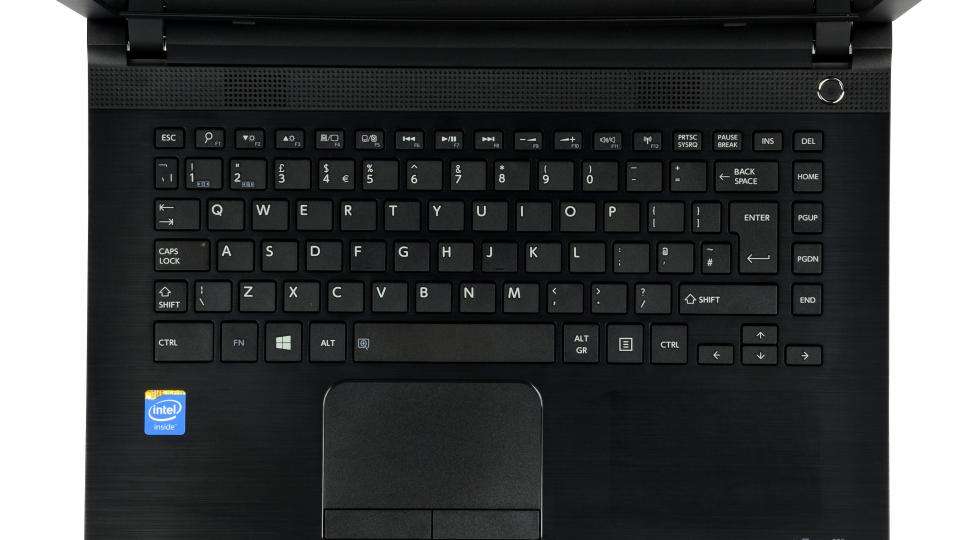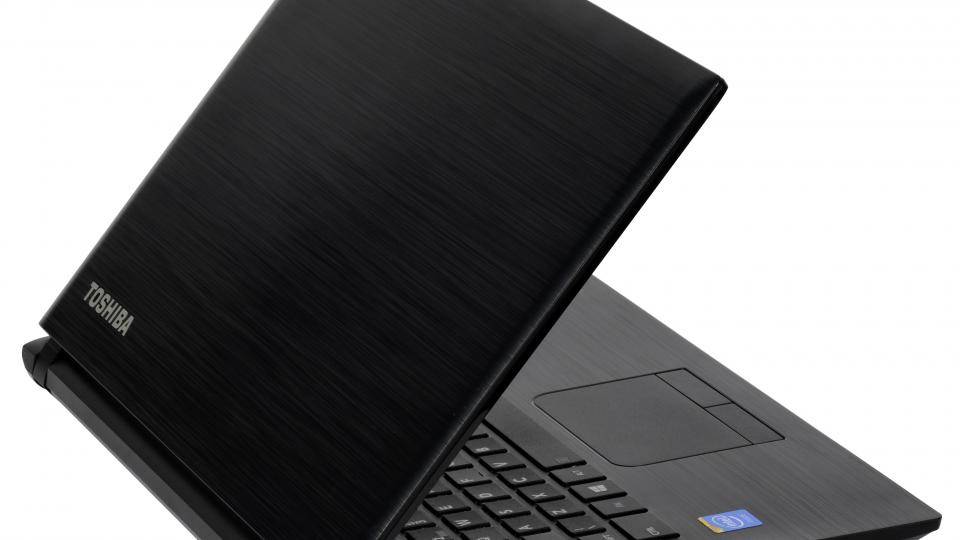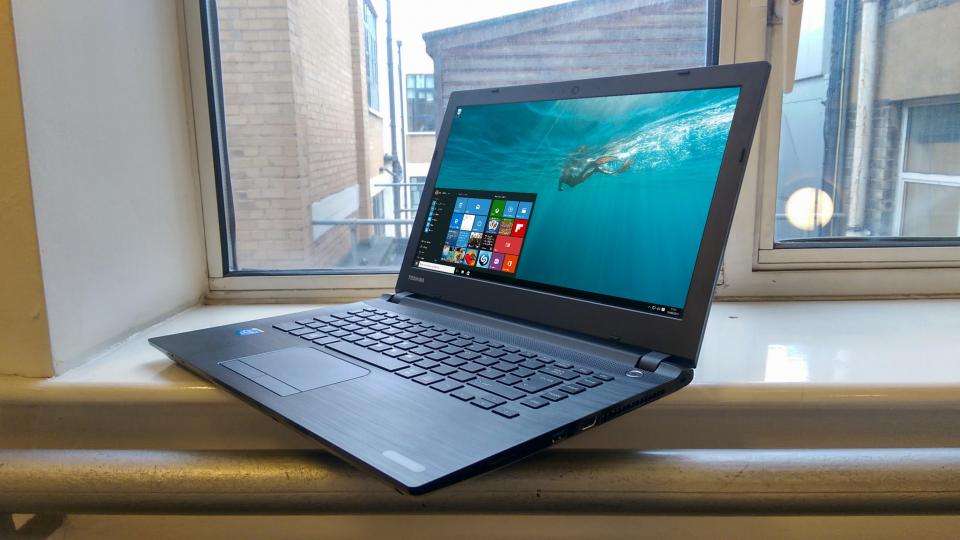With a 1.6GHz, dual-core Intel Celeron N3050 processor on board, the Toshiba C40-C is unlikely to break any speed records, unless those records are for the slowest time to complete our application benchmarks. This Toshiba model has other advantages for its price, however; its 14in screen size makes it much more suited to working on the move than other netbook-style laptops.
The Toshiba's chassis is impressively stylish for a laptop costing just £200. It may be made completely from plastic, but instead of your standard matt or glossy black material, you get a brushed metal-style look that elevates this machine above its rivals. It doesn't look quite as distinctive as the purple and blue HP and Asus alternatives, but Toshiba rarely ventures away from greyscale when it comes to laptop chassis design anyway.
READ NEXT: Our full list of the best laptops you can buy today
The laptop's chassis has a fair amount of flex, but it feels well-made where it counts. The keyboard's keys, for example, have reasonable feedback, while even the touchpad, normally the bane of any cheap laptop, is responsive and can handle two-fingered scrolling without stuttering.

If you keep your ambitions at bay and treat this device more as a Chromebook running Windows than as a multimedia powerhouse, you shouldn't run into many problems. The processor isn't fast and the 2GB of RAM means the laptop will struggle running multiple tasks at the same time, as demonstrated by a score of 0 in our multitasking test, but if you keep only a few browser tabs and a couple of programs open at a time you should have a frustration-free experience.
If you do try to stretch the C40-C beyond its means, it will punish you with stuttering and slow loading times as virtual memory is used instead of real RAM. If the C40-C is going to be your primary computer, you'll have to think very carefully about whether you can accept this compromise. If, however, you're considering it to be a secondary laptop for when you want something small and light with you on the go, it has more appeal.

What you lose in performance you gain massively in terms of battery life. Low-power Celeron chips are known for their frugality, but we were still mightily impressed with the laptop's 11h 25m rundown time in our battery benchmark.


